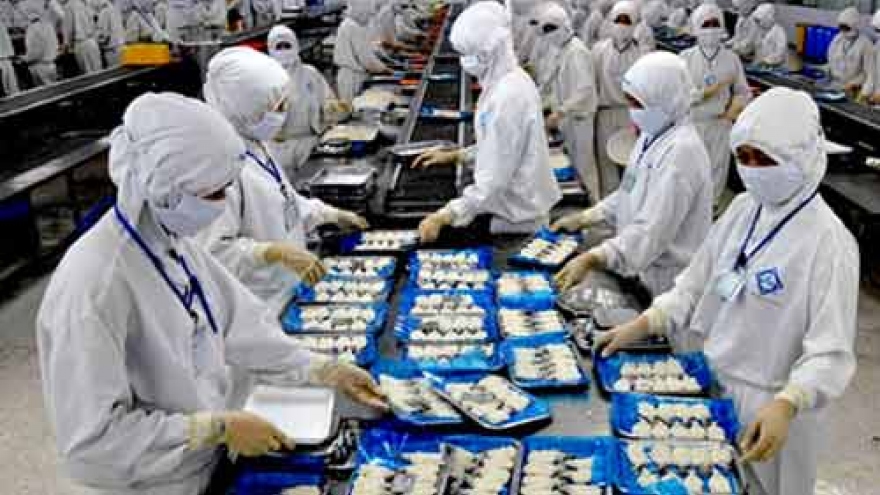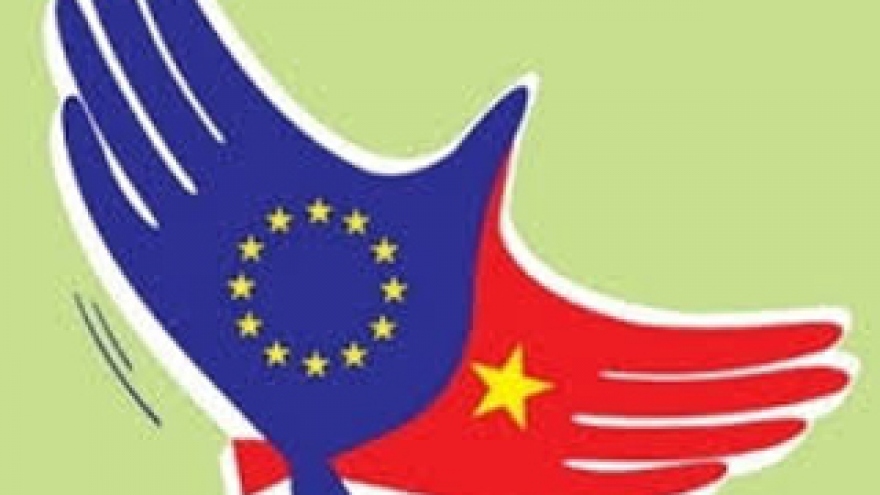EVFTA levels field for public tenders
The EU-Vietnam Free Trade Agreement will open an important gate for investor access to the government procurement market, with win-win opportunities for investors, state agencies, and the Vietnamese people.
Bruno Angelet, Ambassador and Head of the Delegation of the European Union to Vietnam, writes on this issue.
The EU-Vietnam Free Trade Agreement (EVFTA) was officially concluded in December 2015 during Prime Minister Nguyen Tan Dung’s visit to Brussels. During this important visit, EU Commissioner for Trade Cecilia Malstrom and Vietnamese Minister of Industry and Trade Vu Huy Hoang officially authenticated the conclusion of the agreement.
As a balanced and comprehensive document reflecting Vietnam’s pursuit of wider trade and its transition towards a more competitive and sustainable economy, the EVFTA will eliminate almost all tariffs on the movement of goods between Vietnam and any of the EU’s 28 member states. It also contains deep commitments in terms of services, public procurement, non-tariff barriers, export duties, and a regulatory package.
Following Singapore, Vietnam is the second ASEAN partner to conclude a free trade agreement with the EU, and as such, this EVFTA offers a helpful model for other ASEAN nations.
The EVFTA is also the most ambitious and comprehensive FTA that the EU has ever concluded with a developing country. Thus it provides a new model for Europe’s engagement with other developing economies.
 |
Why does public procurement matter in international trade?
Public procurement is about how public authorities spend public money when buying goods, works or services. This can range from the provision of water, gas or electricity, to buying IT equipment, to building a hospital or a road.
Public procurement affects a substantial share of world trade flows, amounting to EUR1 trillion (US$1.11 trillion) per year. It also makes up a significant portion of a national economy, generally around 10-25% of gross domestic product (GDP).
In the EU, the public purchase of goods and services has been estimated to account for 16% of GDP. Vietnam has one of the highest ratios of public investment-to-GDP in the world. Since 1995, this ratio has stayed at over 39% annually, with a large part invested in infrastructure projects. This market has become very attractive to many foreign investors.
The opening of public procurement markets can be beneficial, because it enhances the government’s ability to obtain better value for money, and it increases the efficient use of public resources. It is also a powerful tool to fighting corruption by increasing transparency and legal certainty.
Public procurement contracts constitute considerable international business opportunities in sectors where EU industries are highly competitive. EU companies successfully bid for international procurement contracts in many sectors, including public transport, railway equipment, construction services and equipment, IT services, medical equipment, energy generation, as well as water treatment and environment management.
While the EU procurement market is one of the most open in the world, European businesses cannot always get equal access to procurement markets outside the EU. Many countries are reluctant to open their procurement markets to international competition. This creates an uneven playing field for EU companies, and limits business opportunities in these markets.
Under the EVFTA, government procurement is an important chapter, as it is the first time that Vietnam will open its government procurement market to a foreign partner.
In short, Vietnam and the EU have agreed on principles fully in line with the Government Procurement Agreement (GPA) rules of the World Trade Organization (WTO). The government procurement chapter of the EVFTA achieves a degree of transparency and procedural fairness comparable to other FTAs that the EU has signed with developed and more advanced developing countries.
Upon entry into force of the agreement, expected by early 2018, EU companies will have the same rights as Vietnamese companies, allowing them to bid for public procurement contracts of all Vietnamese ministries at a central level, including for infrastructure such as roads and ports, or with state-owned enterprises such as Electricity of Vietnam or the Vietnam Railway Corporation.
As a result of its “developing country” status, Vietnam will benefit from special treatment and/or certain transitional measures pertaining to threshold values. In practice, only procurement activities carried out by covered entities purchasing listed goods, services, or construction services of a value exceeding specified threshold values are subject to the agreement.
For threshold values, a transitional period of 15 years will apply across the board, with a progressive scaling down of thresholds up to a level comparable to those offered by other GPA members. For example, the initial threshold of 1.5 million special drawing rights (SDR) for goods and services for central government entities will gradually be reduced to 130,000 SDR. A transition time was also granted to Vietnam for developing a central web portal for advertising procurement contracts.
The commitment undertaken by Vietnam will create a level playing field for EU companies and create new business opportunities.
They will also offer win-win opportunities to the Vietnamese government and people. The provisions agreed upon will enhance transparency and good governance. Only high-quality services and products at a fair price can survive in these markets.
European bidders will not only be bound by Vietnamese legislation, but also by EU rules that can be used to tackle problems should they arise. The final beneficiaries of Vietnamese and European commitments in government procurements will be the state agencies, which will benefit from higher accountability, and the people of Vietnam, who will enjoy excellent quality infrastructure invested in using tax-payers’ money.
It goes without saying that Vietnamese companies will also get access to the EU procurement market. Procurement for goods and services by both central and local entities in the 28 member states of the EU will be open to Vietnamese bidders.
The value of tenders advertised across the EU is approximately EUR420 billion (US$475 million) per year (in 2010).
Of course one may argue that these EU government procurement markets are not yet in the sights of Vietnamese companies. However, “Not yet” does not mean “Never”. Vietnamese companies and investors have already started reaching out to the world through investments in oil and gas exploitation, real estate, and telecommunications in Southeast Asia and Africa.
This is something that none of us had imagined 15 years ago when Vietnam first commenced its WTO negotiations.
I am confident that in the near future we will see quite a few public contracts in Europe that are won and implemented by Vietnamese companies.


